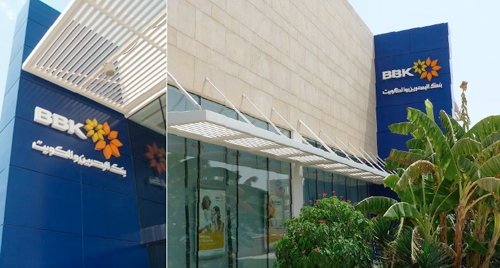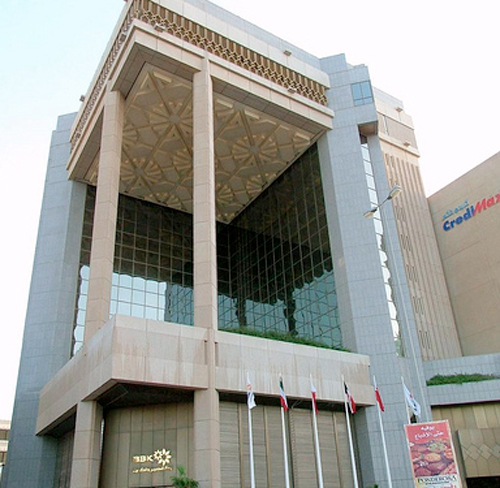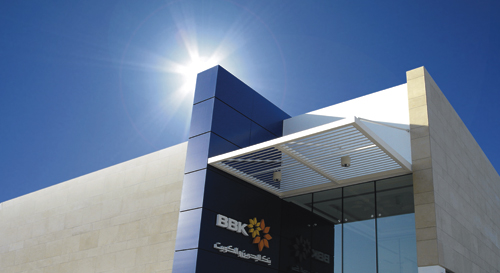Bahrain Banking: Banks in Bahrain and the Crisis
Abdulkarim Ahmed Bucheery, Chief Executive of BBK & Chairman of Bahrain Association of Banks
I do not think that Bahrain will easily lose its brand or position as the financial hub for this part of the world. Banking in Bahrain has a tradition.
Interview with Abdulkarim Ahmed Bucheery, Chief Executive of BBK & Chairman of Bahrain Association of Banks

We have seen recent events taking place in Bahrain, what is your opinion about the situation that is happening recently and what are the impacts that it has had on the economic sector, the private sector, the banking sector and the entire economic environment of Bahrain?
For instance, the liquidity of banks did not suffer in Bahrain. I am given to understand that, now, most of the commercial banks are indeed suffering from high liquidity and the reason is because the customers are still confident in depositing their cash into the banking system.
Economically the crisis has unfortunately lead to some negative implications, the most important one being the severe down grade of the country’s rating which was unfair and happened very quickly. It takes months or sometimes years for any country to lift up its rating. I think the rating was somehow done unrealistically based on a picture that was not 100% accurate.
This well lead to very negative implications and it means that the cost of borrowing for the country will rise as well as that for the banks operating in the country. So basically: increasing the cost for us. This will mean higher costs in our lending and of course the whole cycle will lead to an increasing burden on the clients and the banks.
The other implication is that the country has almost came to a halt in terms of business with regards to all the sectors especially the retail, which almost had a total stoppage during the months of February and March that lead to severe cash flow problems for them. One more negative implication is that this whole thing has lead to dismissal of a good number of employees from large, private and public institutions in the country. Many people that are clients of banks would definitely be amongst them and some of these people would have consumer loans from banks that will become difficult for them to repay.
This will result in a more difficult loan portfolio and, hence, higher nonperforming loans, which mean banks will have to provide for it and this will basically put a drain on their profitability. Having said all of this, the problems of the country are now more apparent and it surely will make it easier in the future to address them. The regime will definitely, henceforth, take the needs of the population into consideration and I firmly believe that the country will definitely become much stronger in the future.
As I said, there will be short term implications for sure, but in the long run the country will be much stronger and it will be able to manage and plan in a much better way. Notwithstanding all these negative developments, there were, on the other hand, some positive signs such as the clear confidence in the country’s banking system even during the peak of the crisis. For instance, the liquidity of banks did not suffer in Bahrain. I am given to understand that, now, most of the commercial banks are indeed suffering from high liquidity and the reason is because the customers are still confident in depositing their cash into the banking system.
Also, a good amount of liquidity came from outside of Bahrain and mainly from neighboring countries, so this has really reflected the confidence in the Bahrain banking system and the high regards to the CBB which continues to be regarded as a very prudent regulator. Moreover, the bank’s performances have been good during the first quarter as illustrated by their results that have been published where most of them have either reported growth over last year or have shown strong level of profitability amidst such difficult circumstances. 
I think banks will be under pressure a little bit in terms of the need for higher provisions to take care of their difficult clients be it consumers or corporate, so surely Banks will have to set aside a little bit more of provisions in the coming quarters but not to the extent that it will impact their profitability in a significant way. In the end, I think banks will still be able to operate very well and perform up to acceptable levels.
According to data by Bahraini Central Information Organization, inflation in the kingdom climbed to a 4 month high of 1.6% on an annual basis in February as the consumer prices jumped from the previous months. The kingdom’s economy is growing to 3.4% in 2011, lower than previously expected due to public unrest after the estimated 4% in 2010. How real is the threat of inflation in Bahrain?
It is not a real threat at all. A 1.6% is still very low compared to the region and internationally. A rate of 1.6% is a very tolerable rate of inflation and it is the same level of inflation that the country has been living at since the 70’s. The correction that is happening to the commodity prices will also help. As for the growth rate, I agree that it is not high but it is not disappointing either.
Are you happy with the momentary policy of the central bank in Bahrain and these interest rates? What do you think of the interest rate policy that has to be taken?
You must be aware that the central bank has indeed reduced the interest rate from before the crisis until now; a cut to the tone of 3 to 4% in the interest rate in Bahrain has taken place. The interest rate on BD is in line with other GCC currencies and it is in a sort of a parallel run with the interest rate on US dollars.
The interest rate has gone down to low levels now and I think that the central bank has managed the interest rate situation in a good way. I don’t think the present economic situation allows for any further reduction in interest rates. The whole world predicts the interest rate on US dollars to go north from here and I think the interest rate on BD will also start to rise.
BBK has posted a net profit of 11.7 million BD (approx. 31 million dollars) to the first quarter of this year against 12.5 million for the same period last year. What are the key success factors behind this achievement?
The key success factor behind our strong performance is that we have stuck to the strategy that we’ve put for ourselves 2 years ago. Of course we change as development takes place but we try to avoid diverting away too much from the core of our strategy, which calls for concentration on the retail segment; something that we are good at and understand very well.
In addition one of the core elements of our strategy is to shift the concentration of the loan and asset portfolios from the international market into local and regional markets and we have again been very successful in doing that.
The fees that we make from the services that we provide have contributed very handsomely in our bottom line for the first quarter. Although the numbers for the first quarter of 2011 were lower than that of the first quarter of 2010, the latter has included some extraordinary profits that are of non-recurring nature. Excluding those exceptional items, you will find that we have performed much better than last year. In summary, I think the core activities of the bank have been the main driver behind this good performance.
What are your challenges? What are the things that you have to improve on in this case?
I think the main challenge is to keep the high quality of our loan portfolio intact and try to defend any possible deterioration in the quality of the loan portfolio. Early handling of any sign of possible deterioration is imperative and, therefore, we have been calling more actively on our clients to make sure we stand with them at the right time before the problems get aggravated and before they get too deep that makes it harder to address them.
I think that it is very important that we stay close to our clients and we give them the advice that will enable them to perform well and that is a major challenge for us. Another challenge is instigated by what has happened of late in Bahrain. There is fear amongst the private sector to invest in new opportunities or expand their business and this means lesser channels for banks to deploy their excess liquidity, so the challenge now is how to deploy profitably and prudently your excess liquidity.
The local market is not offering that opportunity right now, so what we need to do is look into the neighboring countries while at the same time be as aggressive as we can in any opportunity that may become available in the local market. If your loan portfolio goes down one year because of external factors, that is fine and that means that your profitability will go down which should be acceptable to everyone including the shareholders provided you are on the right path for the future.
What opportunities or assets do you see that the bank might acquire?
Of course, at BBK, we are always looking for expansion, whether through acquisitions, mergers or setting up new ventures by ourselves or in association with others. In fact, we will shortly be announcing a new joint venture in Kuwait to handle a particular market in there and this will be in association with major players in that particular business.
We have also been looking into another opportunity for our call center “Invita” which is 100% owned by BBK in another GCC country, we are presently exploring this opportunity and we will give it our best effort to bring it into reality as soon as we can.
We have also been looking into expanding the business of our subsidiaries into North African countries; Egypt in particular. We were about to sign an initial agreement with a partner in Egypt right before the crisis erupted in there which made us shelf our plans for now. In India, we are planning to become more involved and we are currently studying the need to increase our capital and expand the branch network there.
We have already put an application for two more branches with the Reserve Bank of India (RBI). We are now talking to them and we are hoping to get the license maybe not in the exact locations we desire but in locations that are close to what we desire. Though BBK is still not a very large bank but we still can go into some affordable acquisitions or mergers outside of Bahrain.
Can you comment on your strategy, are you going to revive or stick to what you have been doing? Do you think you are going to deliver higher numbers than this year for the next one?
We were hoping that the strategy for 2011 will be more applicable but we did not know that a crisis of such magnitude would come to Bahrain. Now that we know what happened we are definitely going to stand by our corporate clients in the country and we are trying to ease the pressure on our consumer clients where almost each a few months we introduce new initiatives to help our consumers.
For instance, last month we announced a package for our consumer clients whereby we have allowed them to skip a number of payments without charging fees or interest in the first month. That has helped a lot of customers and was very well received as evidence by the large amount of acceptance to the offer that we have received on that which was really much larger than what our expectation was. Judging from our previous experiences, we thought a maximum of 20% of our clients will opt for that option but as a matter of fact much more than that have opted for the option.
What is your vision for the bank and the banking sector itself for the next 3 years?
If no major crisis happens like the one we have been through, I think the banking sector in Bahrain will become stronger and more mature. Mostly the bank will start looking outside of the country because the country is not large enough for all this large number of banks to meet their aspirations, so we will have to look out side the country. 
I think an increasing number of Bahraini banks will have a presence in the GCC as well as other neighboring countries. There could be some consolidation going on in the future. I think there will still be new entrants to the market but not major ones because I don’t think they will have the ability to come and compete and make profits in the traditional market of the country that is to some extent over banked, unless of course they have specialization that is not available right now in the country. I think the industry will become more mature in terms of the products and their sophistication and clients will find it much easier to do banking, especially through the net.
Any threats for banks going out after the crisis?
I do not think that Bahrain will easily lose its brand or position as the financial hub for this part of the world. During the peak of the crisis you might have heard that only 4 small licensed institutions have left or are planning to leave the country.
I was in a meeting that we arranged as the Bahrain Association of Banks, where we met with all the foreign banks and it was apparent during that meeting only four firms have plans to leave, 3 of them are not even associated to the crisis. They were more related to either consolidating their business or moving to consolidate their offices in the Middle East or for lack of business that they had anticipated but did not find.
Only one of them is leaving because of the crisis. Other than that, no major banks have thought of moving outside of the country, to the contrary most of the foreign banks have emphasized on their strategies and plans to stay because if foreign business decide to run away as crises hit a particular country you will see no foreign firms operating in any country other than their home land as crises will continue to occur forever. Bahrain, like any other country has gone through a crisis but that does not mean that this is the end for its banking industry.
It is an option for new comers to choose between Bahrain, and any other GCC, but I truly and strongly believe that Bahrain offers more facilities and reasons to attract financial institutions to be working out of Bahrain; its abundant skilful human resources, advanced telecommunications, sophisticated systems, Bahrain friendly business concept, its 2030 vision and above all a highly accredited Central Bank; are a few facts that put Bahrain ahead of other competitors.